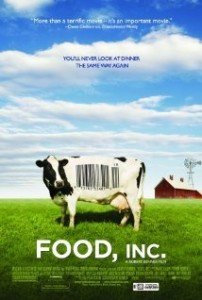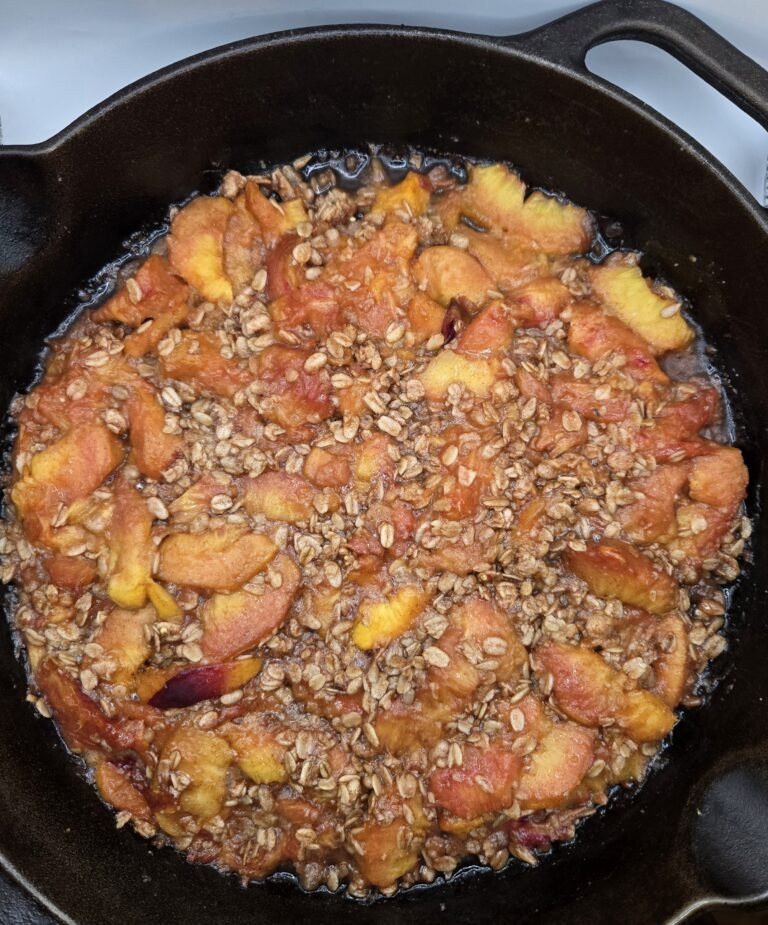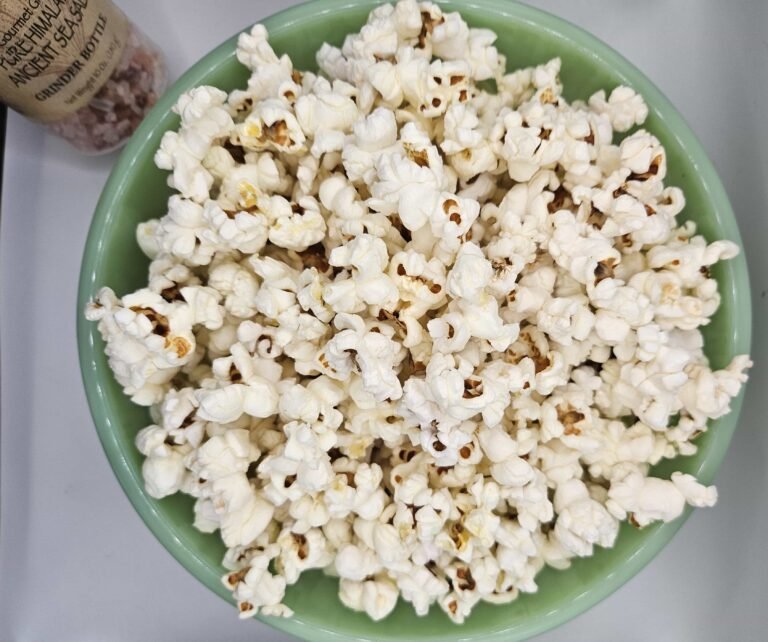The movie Food, Inc. is a documentary where guest nutritionists, naturopaths and general doctors, journalists, and farmers weigh in on topics of industrial food, organic food, food safety, and nutritional therapy. You can see that the movie covers a lot of territory.
One of the most colorful characters featured is a farmer, Joel Salatin, who raises cattle in Virginia for Chipotle restaurant. He points out that before the 1930s we didn’t have grocery stores. Our food came from local fields, forests, and our backyards. He is also great at looking at the bigger picture and comparing our food attitudes to our humanism: “A culture that just uses a pig as a pile of protoplasmic inanimate structure, to be manipulated by whatever creative design the human can foist on that critter, will probably view individuals within its community, and other cultures in the community of nations, with the same type of disdain and disrespect and controlling type mentalities.” A little less radical but equally introspective, he says, “I’m always struck by how successful we have been at hitting the bull’s-eye of the wrong target. I mean, for example, in cattle we have learned how to plant, fertilize and harvest corn using global positioning satellite technology, and nobody sits back and asks, ‘But should we be feeding cows corn?’ We’ve become a culture of technicians. We’re all into the how of it and nobody’s stepping back and saying ‘But why?’”
Michael Pollan says in the movie, “The way we eat has changed more in the past 50 years than in the previous ten thousand.” So to get real, as long as we go back at least 50 years we’re good. Just because there are 50,000 items in the grocery store doesn’t mean there’s a lot of variety when 90% of it is rearrangements of genetically modified corn and soy. You may have noticed, as he explains, “There are no seasons in the American supermarket. Now there are tomatoes all year round, grown halfway around the world, picked when it was green, and ripened with ethylene gas. Although it looks like a tomato, it’s kind of a notional tomato. I mean, it’s the idea of a tomato.”
The director of “Food Inc,” Robert Kenner, was interviewed on The Daily Show after the movie was released in 2009, and he made a point that inexpensive food will bankrupt our country because of the shift in how we spend our money since the introduction of processed foods. Industrial food processing has made salt, sugar, and fat the three food groups. We’re spending half as much (9%) on food as we used to, while our health care was 5% of our paycheck and now it’s 18%. We aren’t going to be able to fix the health care system until we fix the food system. One sixth of the world’s population are now hungry. The last lines of the movie remind people, “If you want to buy $2 milk, you’re going to get a factory farm in your backyard. It’s that simple. People have got to start demanding good, wholesome food.” That’s a tricky catch because I think a lot of people would rather have the $2 milk.
The movie contends that every time you buy something at the grocery store, you’re either voting for local and organic, or you’re voting for the opposite including processed corn, pollution, food coloring, animal abuse, and chemicals. Every vote counts!





